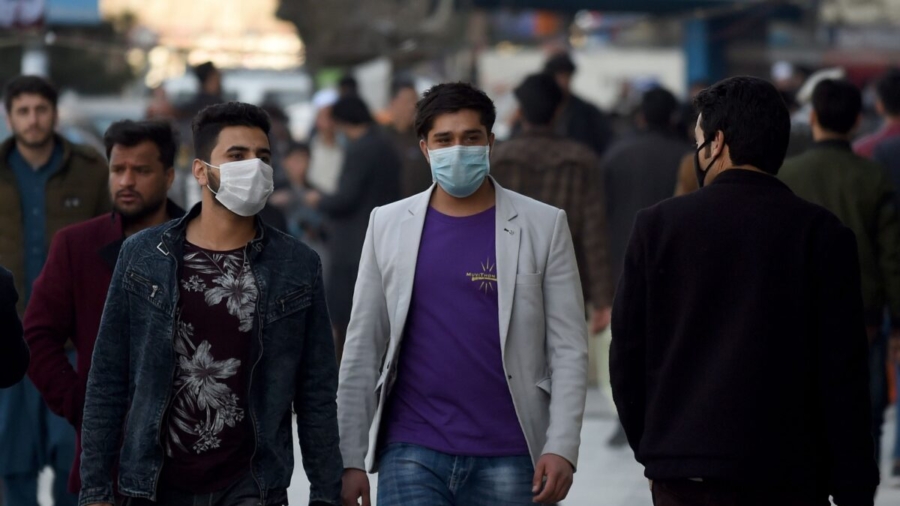Moderna, a U.S.-based drugmaker, has sent the first batch of an experimental vaccine against the new coronavirus to federal researchers to use with humans.
Moderna sent the vaccine from its Norwood, Mass., manufacturing plant to the National Institute of Allergy and Infectious Diseases (NIAID), which is based in Bethesda, Md., and part of the National Institutes of Health (NIH).
The shipment came just 42 days after the company selected part of the genetic sequence of the virus.
The institute expects to start a clinical trial of around 20 to 25 volunteers by the end of April, NIAID Director Anthony Fauci told The Wall Street Journal. “Going into a phase one trial within three months of getting the sequence is unquestionably the world indoor record. Nothing has ever gone that fast,” Fauci said.
Initial results could be available as soon as July. But any vaccines will likely take until next year to become available on the commercial market because of the need to conduct additional studies and clear regulatory hurdles.

Fauci, speaking last month on a panel in Washington, said that it takes about two-and-a-half months to start a phase one trial and the trial takes about three months to make sure the vaccine is safe. A phase two trial follows on a much larger group, hundreds or even thousands of people. That trial would take at least six months but possibly over eight months, he said. If the vaccine passes the trials, it takes additional time to scale up for major distribution.
Moderna’s efforts are being funded by the Norway-based Coalition for Epidemic Preparedness Innovations, the company and group announced in late January. The coalition is also funding efforts by Inovio and the University of Queensland in Australia to develop vaccines against the new COVID-19 disease.
“Through our partnership with Moderna and the NIH, we hope to speed the development of a vaccine against the coronavirus and help to alleviate the burden of disease,” Richard Hatchett, the coalition’s CEO, said in a statement.
Moderna’s vaccine uses or mRNA, or Messenger RNA. The genetic molecules carry the information from the DNA in the nucleus of the cell to the cytoplasm where the proteins are made, according to NIH.
The approach of using mRNA carries potential advantages including the ability to mimic natural infection to stimulate a more potent immune response, combining multiple mRNAs into a single vaccine, and rapid discovery to respond to emerging pandemic threats, according to the company. Moderna has no approved vaccines but has nine being tested or developed, including one for the Zika virus.

Other companies are also working on vaccines. Johnson & Johnson’s vaccine division, Janssen, is working with the Department of Health and Human Services’ Biomedical Advanced Research and Development Authority to develop a vaccine.
“Janssen is a proven partner with a flexible, rapid, vaccine platform which gives us an edge in the race to protect people in the U.S. and worldwide from the health security threat posed by this Novel Coronavirus,” Rick Bright, director of the authority, said in a statement earlier this month announcing the partnership.
The department is also working with Sanofi Pasteur, the vaccines global business unit of Sanofi, to develop a vaccine using Sanofi’s egg-free recombinant DNA platform.
“The technology produces an exact genetic match to proteins of the virus. The protein’s DNA will be combined with DNA from a virus harmless to humans, and used to rapidly produce large quantities of antigen which stimulate the immune system to protect against the virus,” the department said in a press release. “The antigens will be separated and collected from these cells and purified to create working stocks of vaccine for advanced development.”

Other researchers are working on testing existing drugs on coronavirus patients. Two clinical trials conducted through the World Health Organization’s R&D Blueprint, a plan that allows the rapid activation of research and development activities during epidemics, are expected to produce preliminary results around mid-March.
One of the trials is using lopinavir and ritonavir, two drugs typically used to treat HIV, or human immunodeficiency virus infection. The other trial is testing an antiviral drug called remdesivir that was developed by Gilead Sciences.
Dr. Bruce Aylward, an expert from Canada who is leading an organization team in China looking at the outbreak there, told reporters on Monday that experts believe remdesivir might have “real efficacy.”
He called for diverting more resources into treatments that are promising, saying, “We have got to start prioritizing enrollment into those things that may save lives and save them faster.”
From The Epoch Times


